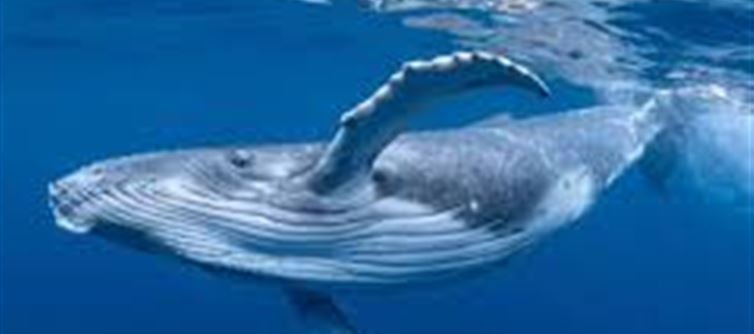
.jpeg) The reason for the significant decrease in the sounds of blue whales is. It has been found that extreme ocean heat waves have damaged the whales' environment, as well as caused a chain reaction in the marine food web. It has been found that these heat waves have led to toxic algal blooms, which have not only poisoned marine mammals but also wiped out key food sources such as krill and anchovies. It is also the most widespread poisoning of marine mammals ever recorded, said john Ron, a biologist at the Monterey Bay Aquarium Research Institute. He said that the sounds of blue whales have decreased by about 40 percent compared to the past decades. Blue whales sing when they are hungry to find food. He said that the sound of these blue whales has decreased a lot during such singing. However, he said that the problem started in the Pacific Ocean in a warm water area called The Blob. The problem was first identified in 2013. Then by 2016, it had grown to a huge area more than 2000 miles long, he said, and this was due to rising sea temperatures.
The reason for the significant decrease in the sounds of blue whales is. It has been found that extreme ocean heat waves have damaged the whales' environment, as well as caused a chain reaction in the marine food web. It has been found that these heat waves have led to toxic algal blooms, which have not only poisoned marine mammals but also wiped out key food sources such as krill and anchovies. It is also the most widespread poisoning of marine mammals ever recorded, said john Ron, a biologist at the Monterey Bay Aquarium Research Institute. He said that the sounds of blue whales have decreased by about 40 percent compared to the past decades. Blue whales sing when they are hungry to find food. He said that the sound of these blue whales has decreased a lot during such singing. However, he said that the problem started in the Pacific Ocean in a warm water area called The Blob. The problem was first identified in 2013. Then by 2016, it had grown to a huge area more than 2000 miles long, he said, and this was due to rising sea temperatures. He said that due to the increase in sea temperatures, blue whales are not getting food, and these ocean heat waves are affecting the ecosystem. He said that due to this, blue whales eat less food and make less effort to reproduce, and as a result, the blue whale population is gradually decreasing. Also, science says that human activities are causing climate change, which will have a serious impact on the oceans. But he said that future generations need to learn a lot from these oceans. john Ron said that the change in the voice of blue whales is frightening scientists.




 click and follow Indiaherald WhatsApp channel
click and follow Indiaherald WhatsApp channel